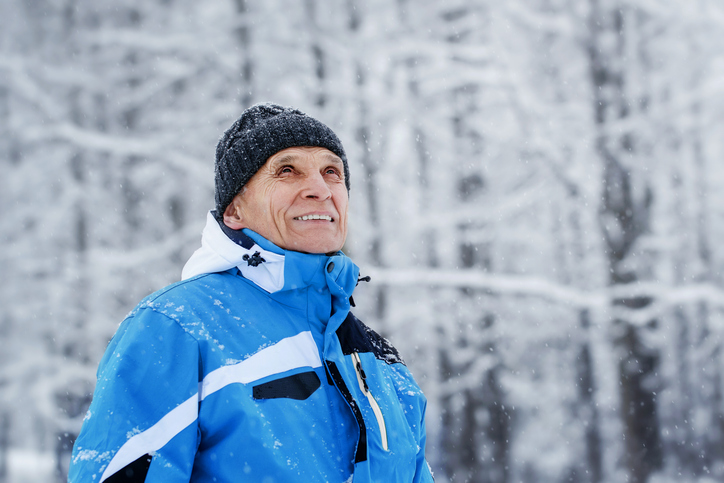Winter brings picturesque snowy landscapes, but it also brings slippery sidewalks, icy driveways, and an increased risk of falls. For individuals of all ages, but especially older adults, the colder months can pose serious challenges to balance and mobility. Preventing falls during winter isn’t just about staying upright; it’s about protecting health, maintaining independence, and ensuring safety in the face of seasonal hazards.
Here, Spencer Olson, physical therapy assistant at Riverside Healthcare, offers practical tips, tools, and strategies for preventing falls during the winter months.

Step-by-Step Fall Protocol
Per Olson, the key to preventing falls is maintaining and improving your balance year-round by safely challenging yourself. A strong sense of balance helps you react better and recover more effectively if you slip on ice or unstable surfaces.
However, falls can still happen—even if a person has a good sense of balance. Should a fall occur, Olson advises a step-by-step protocol individuals should follow. First things first after a fall, take a moment to gather your thoughts and assess the situation. Reflect on how and where you fell, as the shock can initially numb your senses.
Then, perform a head-to-toe mental check. Did you hit your head or any other part of your body? Can you move your toes and limbs to rule out nerve damage? Look for signs of bleeding or severe pain. Allow at least a minute to let the initial shock subside and slowly test for mobility.
“If you have a cell phone on you, better to call somebody than to not if you're on the fence about how severe your injuries may be,” urges Olson. “If there's blood, you definitely want to get checked out, as well as if you're feeling dizzy, faint, anything like that. Dizziness may have even been the reason for the fall, not necessarily an icy patch.”
Role of Physical Therapy in Preventing Falls
Not everyone recovers easily from a fall, so it's essential to focus on improving balance and strength to prevent falls or better catch yourself. Falls training can help individuals who are more prone to falling by teaching safer ways to fall and reducing the risk of injury. Additionally, safety training emphasizes strategies to minimize fall risks in daily life. These are all things physical therapy can help with.
Should a person require surgical intervention after a fall, such as to repair a broken bone, the orthopedic experts at Riverside offer top-level care—with physical therapy to follow almost immediately. “We get you up, we get you moving, and that rehab process starts right then and there. It is hugely important to keep going, to make sure you keep recovering, and recover well, because the more you sit, and the less you use it, the more you lose,” cautions Olson.
Always Be Alert
One final piece of advice Olson shares is to understand the riskiest time for falls—which is typically the months of November, December, and March. The reason March is so precarious is that many people assume the danger has passed. Not true.
“Take your time to go through your paces you perform during your normal day and just make sure your roads, your sidewalks, your steps are salted and you take slow, easy steps even when coming out of the winter months,” he notes. “Once you hit March, don't think, ‘Okay, I'm good.’ Still take your time. Be careful, especially if you haven't been active in the winter months.”
For more information about Physical Therapy at Riverside click here.
